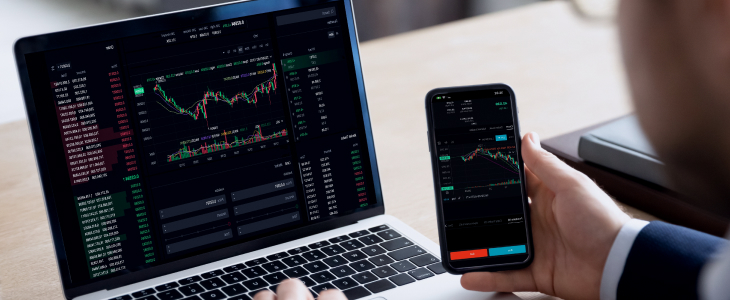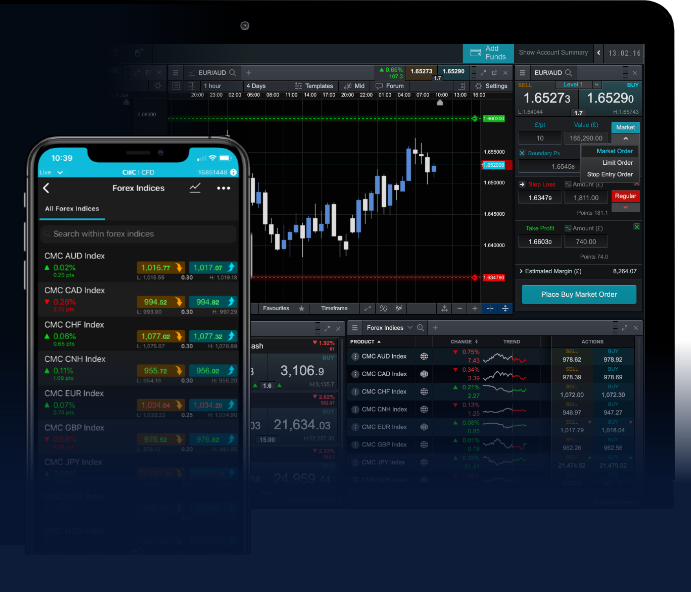
Forex trading is an exciting and potentially lucrative opportunity for individuals looking to enter the financial markets. To trade forex effectively, one of the first steps is to set up a forex trading account. This account acts as your gateway to the world of currency trading, enabling you to buy and sell different currencies. In this article, we’ll delve into the intricacies of forex trading accounts, the various types available, and how to choose the right one for your trading needs. Additionally, we’ll touch on some of the essential factors to consider when selecting a broker, such as forex trading account Trading Brokers, ensuring that you have a well-rounded understanding of what to look for.
What is a Forex Trading Account?
A forex trading account is a type of account offered by brokerage firms that allows individuals to trade various currency pairs in the foreign exchange market. When you open a forex trading account, you can deposit funds, trade currencies, and then withdraw your profits or losses according to the market movements. These accounts come equipped with trading platforms, tools, and resources to help traders make informed decisions.
Types of Forex Trading Accounts
There are various types of forex trading accounts, each designed to cater to different levels of experience, trading goals, and capital. Here are the most common types:
1. Standard Account
Standard accounts are ideal for experienced traders who have a good understanding of the forex market. Typically, these accounts require a higher minimum deposit and offer larger trade sizes and leverage options. Standard accounts allow traders to access the full range of trading instruments, including major, minor, and exotic currency pairs.
2. Mini Account
Mini accounts are designed for those who are new to forex trading or wish to trade with smaller amounts of money. These accounts require lower minimum deposits than standard accounts and allow traders to trade in smaller units, known as mini lots. This type of account is suitable for individuals who want to learn trading without risking substantial amounts of capital.
3. Micro Account
Micro accounts suit beginner traders who want to start with very small investments. The minimum deposit required is significantly lower than that of mini and standard accounts. Trading with micro lots allows new traders to practice their skills in a live environment, gaining valuable experience while minimizing their risk.
4. Managed Account
A managed account is an account where a professional trader handles all trading decisions and execution. This is ideal for individuals who may not have the time or knowledge to manage their own forex trading. Investors can sit back and let experienced professionals manage their funds for a fee.
Choosing the Right Forex Trading Account
When selecting a forex trading account, there are several factors to consider to ensure it aligns with your trading goals and risk tolerance:
1. Trading Style and Experience
Consider your trading experience and style. Are you a beginner looking for a learning opportunity, or are you an experienced trader seeking advanced features? Ensure the account type you choose matches your experience level and trading approach.

2. Minimum Deposit Requirements
Different account types come with varying minimum deposit requirements. Determine how much capital you are comfortable investing and choose an account type that aligns with your budget.
3. Leverage Options
Leverage allows traders to control larger positions with relatively small capital. Understand the leverage options offered by your broker and choose an account that provides the leverage suitable for your trading strategy.
4. Spread and Commission Fees
Spread refers to the difference between the bid and ask price of a currency pair. Look for accounts with competitive spreads and be aware of any commission fees that may apply. Lower costs can significantly impact your trading profitability over time.
5. Trading Platforms
The trading platform is where you will execute trades and monitor market movements. Verify if the platform provided meets your preferences, offering the necessary tools and features to assist in your trading activities.
Key Features of Forex Trading Accounts
Regardless of the type of forex trading account you choose, some key features can enhance your trading experience:
1. Educational Resources
Many brokers offer educational materials and resources to help traders improve their understanding of forex trading. This includes tutorials, webinars, articles, and market analysis.
2. Demo Accounts
Before committing real money, consider opening a demo account. Demo accounts allow traders to practice their skills in a risk-free environment using virtual currency. This helps build confidence and develop trading strategies without the fear of losing real money.
3. Customer Support
Good customer support is vital, especially for beginner traders who may have questions or require assistance. Ensure that the broker provides multiple channels for support, such as live chat, email, or phone support.
Conclusion
A forex trading account is your essential first step into the forex market. By understanding the different types of accounts and considering essential factors when choosing a broker, you can select the account that best meets your trading needs. Remember, successful trading involves continuous learning and market analysis, so utilize available resources fully. Once you’ve chosen the right forex trading account, you’ll be well on your way to engaging effectively in the exciting world of forex trading.




Be the first to comment